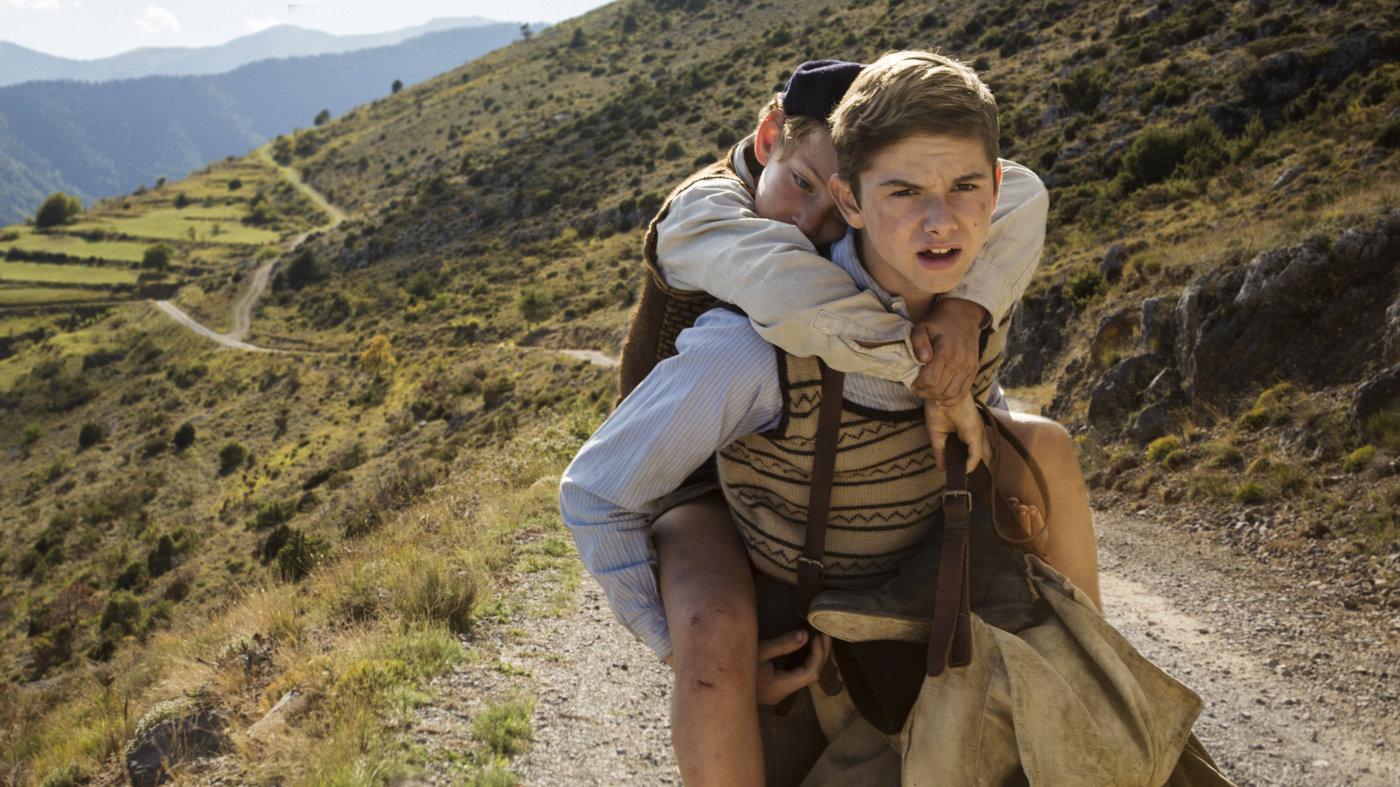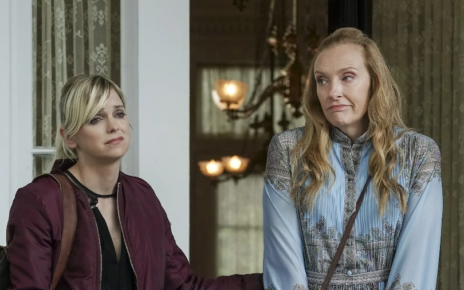And the relentless pursuit to condemn Nazism on film continues unabated. This seems more important than ever considering the disturbing rise of Alt-Right behavior world-wide. Nazis were terrible people making terrible choices; if it takes 17 movies a year to stress this point, I don’t have a problem with that – especially if hate groups continue to sway elections. Nazis are a great go-to evil; it’s almost a shame that the rise of the modern movie coincided with the rise of Nazism because these phenomena will forever go hand-in-hand. There are plenty of evil forces cramping world history; I’d almost feel sorry for Nazis if all generations could just agree, “Nazis are evil; let’s never talk about them again.” Yet, like anti-vaxxers, flat-Earthers, or Trump voters, evil-through-ignorance will sprout anew wherever left unchecked. Hence, the Anne Frank tale du jour is Un sac de billes (A Bag of Marbles), a movie about two Jewish boys in WWII France who got the foot-end of their extended jack-booted beach vacation.
The Joffo family cuts hair. Dad (Patrick Bruel) has trained his adult sons in the art, while the two youngest attend school. With the Germans occupying Paris in 1941, Jews are suddenly forced to wear gold stars like an entire race of Sneetches. The youngest, JoJo (Dorian Le Clech) could give a crap about the star and the fistfights it gets him into, so he trades it for A Bag of Marbles … and we have a title.
Back at home, Dad sends everybody away. Barely a teen, Maurice-in-the-middle (Batyste Fleurial) is tasked with taking JoJo to the coast. By the way, boys, try to avoid the SS. Oh, and don’t tell anybody you’re Jews, ok? Dad literally slaps JoJo around to make sure he gets the message not to divulge his heritage. So picture this, you’re what? Thirteen? Fourteen, maybe? and an occupying army gets into town and your father asks you to go to a place you’ve never been a thousand miles away – oh, and take your little brother. And trust nobody. It takes exactly one train ride to the transfer hub town of Dax for the boys to find trouble; the station is replete with Jew-shooting Germans. Luckily, a Catholic priest at Dax shepherds the boys so their war can last more than six minutes.
More than one Catholic priest goes out on a limb to help JoJo and Maurice in the film. This is a statement unto itself. The church and papacy failed to condemn Nazism at the time, but this biography clearly demonstrates that at least two (and probably thousands more) members of the church were willing to defy Hitler at the potential cost of their lives. It is hard to say whether or not this is fair. The church itself deserves a world of pain for not taking a strong anti-Hitler stand, but it’s worth note that complacency or blithe “see no evil” attitudes were not universal tactics among the flock.
A Bag of Marbles is indeed biographical and suffers from the things that make biographies both good and bad. The action is tense; the pain is real. We know all too well that if these boys at any time are caught and labeled as Jews, they’ll be on the next train to Auschwitz. On the other hand, being biographical, this film takes odd breaks from tension. There are portions during the occupation in which the boys are 100% safe; there are all also entire years missing. I guess we are supposed to understand that nothing happened while JoJo and Maurice were busy at military school, huh? I feel like A Bag of Marbles was too busy describing reality during these periods to remember that the film had a theme. The truth is, of course, the boys were not in danger 24/7, but that’s not quite how films work, and makes me wonder if this material weren’t better suited for television which could properly account for long gaps in tension by filling in with lesser concerns. Perhaps that makes the movie stronger and more “real.” I’m not quite sure.
entire years missing. I guess we are supposed to understand that nothing happened while JoJo and Maurice were busy at military school, huh? I feel like A Bag of Marbles was too busy describing reality during these periods to remember that the film had a theme. The truth is, of course, the boys were not in danger 24/7, but that’s not quite how films work, and makes me wonder if this material weren’t better suited for television which could properly account for long gaps in tension by filling in with lesser concerns. Perhaps that makes the movie stronger and more “real.” I’m not quite sure.
It’s also weird to me that the symbolic Bag of Marbles itself is discarded within hours of the swap. I get that JoJo is into the game and always carries around his favorite marble, an overused pock-marked blue hunk of rock, as an evil-shunning talisman or a symbolic key to his youth. As long as he can hold onto to that damn thing, the Nazis won’t get him and they won’t destroy his childhood, right? So what’s with the easily discarded bag, then? What do the other marbles symbolize? All I could think was, “Aw, you’ve lost all your marbles.” Wait. I think that’s a different film. Do the French have that expression? This movie was good, but I hope the book was a tad clearer on the subject.
The destroyers of Europe had names
Those Nazis deserved all the blames
What significance, marbles?
The message, it garbles
These guys didn’t come to play games
Not Rated, 110 Minutes
Director: Christian Duguay
Writer: Jonathan Allouche, Christian Duguay, Alexandra Geismar, Benoît Guichard
Genre: A Nazi tale
Type of being most likely to enjoy this film: French freedom fighters, marble enthusiasts
Type of being least likely to enjoy this film: Nazis



